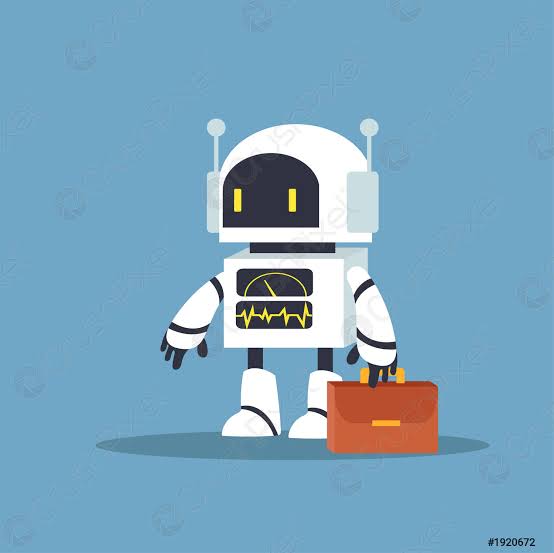Artificial Intelligence is intelligence demonstrated by machines, in contrast to the natural intelligence displayed by humans and other animals. Artificial Intelligence (AI) is the theory and development of computer systems able to perform tasks normally requiring human intelligence , such as visual perception, speech recognition, decision-making and translation between language.
Knowledge engineering is a core part of Artificial Intelligence (AI) research. Artificial Machines can often act and react like humans only if they have abundant information relating to the world. Research associated with artificial intelligence(AI) is highly technical and specialized.
Robotics is also a major field related to Artificial Intelligence(AI). Artificial Intelligence like Robots are machines that can operate autonomously based on programs and commands embedded on its software. They are therefore a convergence of Computer Science, Mechanical engineering and electrical engineering. Robots are designed replace humans in fields which are viable for automated and pre-programmed operations. In present times, ‘Artificial Intelligence’ has opened new vistas in the field of Robotics. It allows robots to also act autonomously. It is an adaptive feature which has the ability to add human touch to robots. The appearance of humanoid robots made its way in Robotics in the 20th century. The depiction of humanoid robots as a popular character also finds its mention in many Hollywood movies like Robot, The Terminator etc.
Machine learning is another core part of AI learning without any kind of supervision requires an ability to identify partners in streams of inputs, whereas learning with adequate supervision involves classification and numerical regressions. Classification determines the category an object belongs to and regression deals with obtaining a set of numerical input or output examples, thereby discovering functions enabling the generation of suitable outputs from respective input. Machine perception deals with the capability to use sensory inputs to deduce the different aspects of the world, while computer vision is the power to analyze visual inputs with a few sub-problems such as facial , object and gesture recognition.
From SIRI to self-driving cars, Artificial Intelligence(AI) is progressing rapidly. While science fiction often portrays Artificial Intelligence as robots with human-like characteristics , AI can encompass anything from Google’s search algorithms to IBM’s Watson to autonomous weapons.
Artificial Intelligence today is properly known as AI in that it is designed to perform a narrow task .However , the long-term goal of many researchers is to create general AI . While narrow AI may outperform humans at whatever its specific task is, like playing chess or solving equations , AGI would outperform humans at nearly every cognition task.
In the long-term , an important question is what will happen if the quest for strong Artificial Intelligence succeeds and an Artificial Intelligence system becomes better than humans at all cognitive tasks. As pointed by IJ Good in 1965, designing smarter AI systems is itself a cognitive task. Such a system could potentially undergo recursive self-improvement and triggering an intelligence explosion leaving human intellect far behind. By inventing revolutionary new technologies , such a super intelligence might help us eradicate war, disease and poverty , and so the creation of strong AI might be the biggest event in human history . Some experts have expressed concern , though , that it might also be the last , unless we learn we learn to align the goals of the AI with ours before it becomes super intelligent.
In India a few research groups have been working on development of robots , but a breakthrough is yet to be made in the file of robots for large-scale industrial application. The groups working on robotics include R and D of the Hindustan Machine Tools (HMT) , the central Machine Tools Institute, and the Indian Institute of Technology (IIT) Madras.
As because AI has the potential to become more intelligent than any human, we have no surefire way of prediction how it will behave. We can’t use past technological developments as much of a basis because we’ve never created anything that has the ability to, wittingly or unwillingly , outsmart us. People now control the planet , not because we’re the strongest , faster or biggest , but because we’re the smartest.
A captivating conversation is taking place about the future of artificial intelligence and what it should mean for humanity . There are fascinating controversies where the world’s leading experts disagree , such as: AI’s future impact on the job market ; if when human-level AI will be developed ; whether this will lead to an intelligence explosion ; and whether this is something we should welcome or fear.
It is human beings who make science. Ills of science like the destructive power of nuclear weapons , the erosion of values because of spread of gross materialism, ever increasing depletion of natural resources , degradation and pollution of the environment etc are actually the ills of man using science in a way that is destructive , undesirable and unholy. It is because the scientist in man has deviated from his social commitments , social conscience. Therefore , there are some sections in the society who want an immediate halt to growth of scientific researches and studies.










